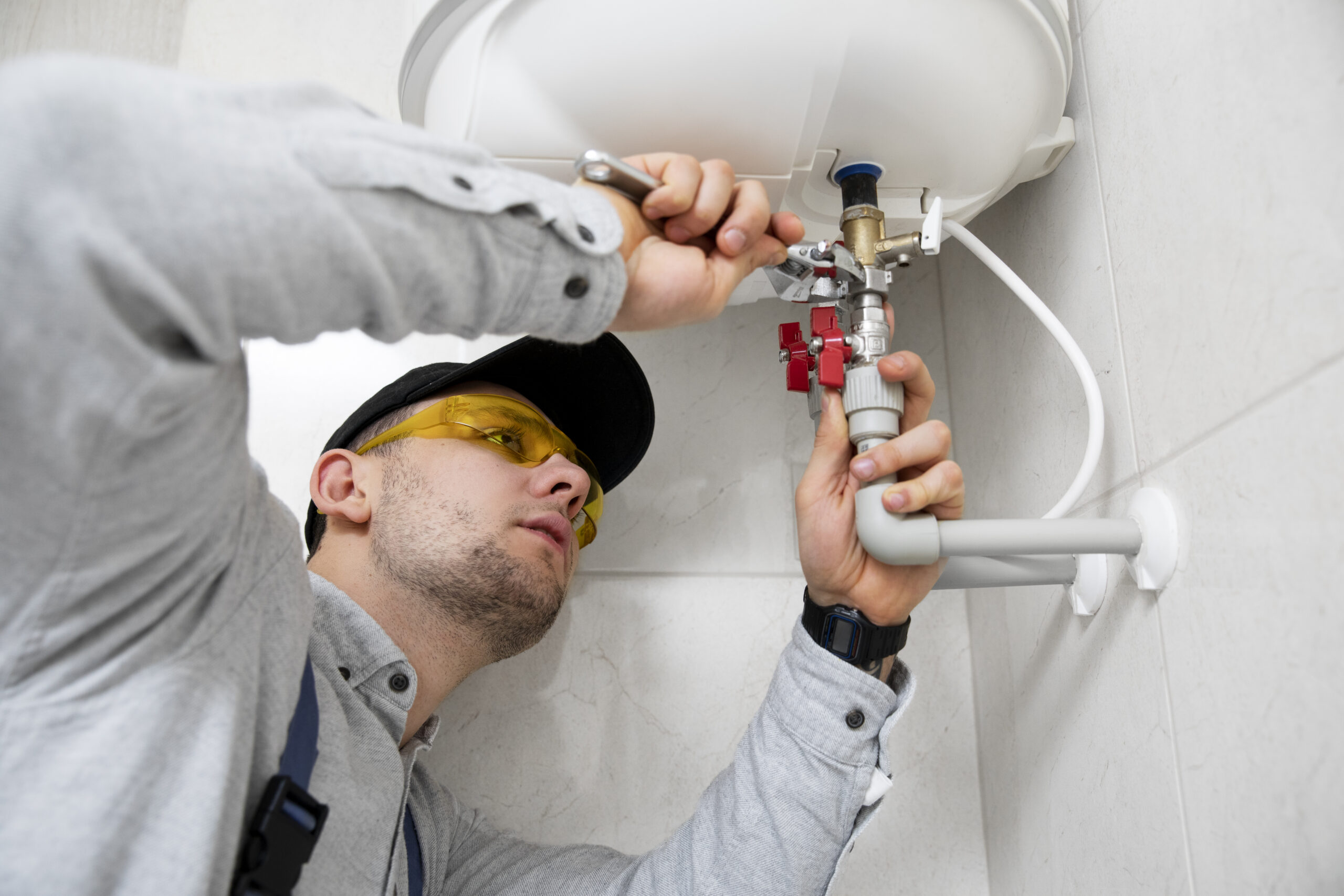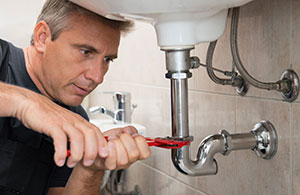Ways to Manage Urgent Plumbing Issues Before Professional Help Arrives
Ways to Manage Urgent Plumbing Issues Before Professional Help Arrives
Blog Article
This article following next pertaining to What to Do While Waiting for an Emergency Plumber is rather engaging. Don't overlook it.

Plumbing emergencies can strike at any time, causing stress and anxiety and possible damage to your home. Whether it's a burst pipe, a clogged up drainpipe, or a leaking faucet, knowing just how to take care of the situation until a specialist plumbing professional shows up can save you from more difficulties. This write-up supplies vital emergency plumbing suggestions to help you mitigate damages and restore control during a pipes dilemma.
Turn Off the Water
The primary step in any type of plumbing emergency situation is to turn off the supply of water. For localized problems, such as a leaking tap or bathroom, turn off the shutoff near the fixture. In the case of a major leakage or ruptured pipe, situate your home's primary water shut-off valve and transform it off right away. Knowing the area of these valves beforehand can conserve valuable time throughout an emergency.
Address Tiny Leaks with Temporary Solutions
Small leakages can rapidly become considerable troubles if left unattended. Make use of these momentary fixes up until professional aid gets here:
While these fixes aren't irreversible, they can help lessen water loss and damage.
Unclog Drains Safely
A stopped up drain can be a discouraging and messy problem. Below's how to tackle it:
If these approaches don't work, prevent making use of excessive force, as it may aggravate the clog.
Take Care Of Overflowing Toilets
An overruning toilet can trigger instant disorder. Below's what you should do:
Shut Off Your Water Heater
In certain emergencies, such as a burst pipe, it's wise to shut down your hot water heater. This stops getting too hot or damages to the system when water quits streaming. Shut off the power supply to the water heater (electric or gas) and let it cool down to stay clear of possible threats.
Momentarily Quit a Ruptured Pipe
A burst pipe can lead to significant water damage in mins. To minimize the problem:
Call an expert plumbing right away to deal with the trouble completely.
Deal With Frozen Pipes Meticulously
In chillier climates, frozen pipelines are a typical emergency. If you suspect a frozen pipeline:
Protect against Additional Damage
Taking fast action to minimize damage can save you time and money in the future. Right here's just how:
. Have an Emergency Pipes Kit
Prepare a standard plumbing emergency situation kit to manage minor problems properly. Your kit needs to consist of:
Having these tools handy can make a significant difference in your capability to manage emergencies.
Know When to Call a Specialist.
While quick fixes can help briefly, particular plumbing problems require instant specialist attention. Call a plumbing technician if:.
Promptly getting in touch with an expert makes certain the issue is fixed appropriately and protects against further problems.
Final thought.
Plumbing emergency situations can be frustrating, yet with the right knowledge and tools, you can manage the situation successfully up until aid arrives. By switching off the water, addressing small leaks, and utilizing momentary repairs, you can lessen damages and maintain your home safe. Keep in mind, these suggestions are momentary options; constantly get in touch with a qualified plumbing professional to handle the root cause of the problem. Prep work and fast reasoning are your finest allies in any type of plumbing emergency.
8 Helpful Tips for Managing Plumbing Emergencies at Home
If your plumbing system hasn’t failed once, wait for it because almost everyone has a story to tell. Sometimes, it could be simple emergencies such as a leaking pipe, a blocked cistern, or even a big burst pipe. In situations like this, you need to have some handy tips to save you some money and from possible damages.
Take care of minor issues early.
Sometimes, you could have avoided an emergency by taking proactive measures while it was still early. Some major plumbing emergencies can be a result of an ignored minor issue. We recommend that you have items like plumbing tapes and other related items. A plumbing tape can allow you to manage minor leaks before the plumber arrives.
Cut off the water supply.
This tip is essential in almost any type of leakage problem. For problems like minor leakages in the toilet or kitchen, turn off the supply that takes water to the affected pipes. If the leakage is a major pipe, you must shut off the supply valve to the entire building. This will help you avoid flooding your home and neighbors if you share a flat.
Know your plumbing system
Folks typically move into a new apartment without understanding the water supply around the building. This can prove disastrous if a water emergency arises and the plumber is far away. The previous tip will prove useless if you don’t practice this one. More importantly, know where your water shut-off valve is located – you’ll need that knowledge to prevent potential home floods.
Have some common handy tools
There are lots of plumbing emergencies that you can handle without hiring a plumber. That’s why you must keep some tools available always. Some tools that you can use to fix simple plumbing emergencies easily include plumbing tapes, screwdrivers, thread seal tapes, plungers, pliers, tape measures, and rubber gloves.
Insulate your pipes from cold
You’ll save yourself from many plumbing expenses if you protect your water pipes from the cold. This is because of the harmful effects that cold weather can have on your pipes. During winter, your pipes can burst from being overly expected to freezing temperatures. So, make sure insulators are there to keep the pipes working correctly.
Avoid practices that will clog your toilet.
Many people indulge in practices that can damage the plumbing system of the entire building. One of these is when they use their toilet to dispose-off garbage. They flush all kinds of things, such as paper towels, bandages, hairs, female sanitary products, etc., down the toilet. This will block your toilet in the long run, incurring unnecessary expenditures. Dump such waste in the trash instead.
Check your dials regularly.
Sometimes, there could be leakages in your home without noticing them in time. So, constantly monitor your water meter dial. If the dial is reading when there is nobody using water, this is an indicator that there is leaking. Check for leaks immediately. Call a plumber as soon as possible if you can’t find any.
https://www.constructionplacements.com/8-helpful-tips-for-managing-plumbing-emergencies-at-home/

We were shown that report on Expert Tips for Emergency Plumbing Repairs through an associate on another site. Sharing is caring. Helping others is fun. I praise you for your time. Come back soon.
Booking Report this page